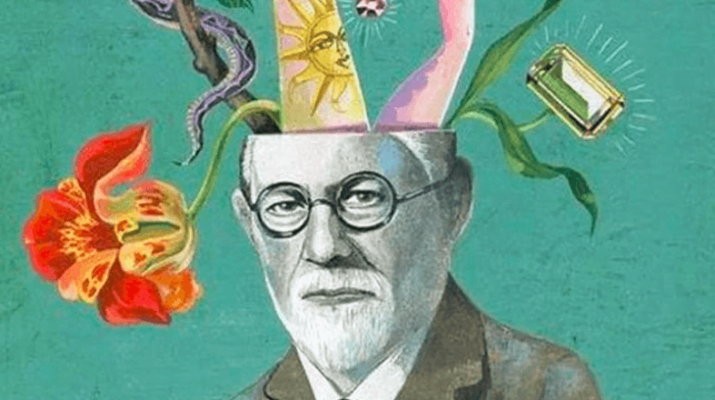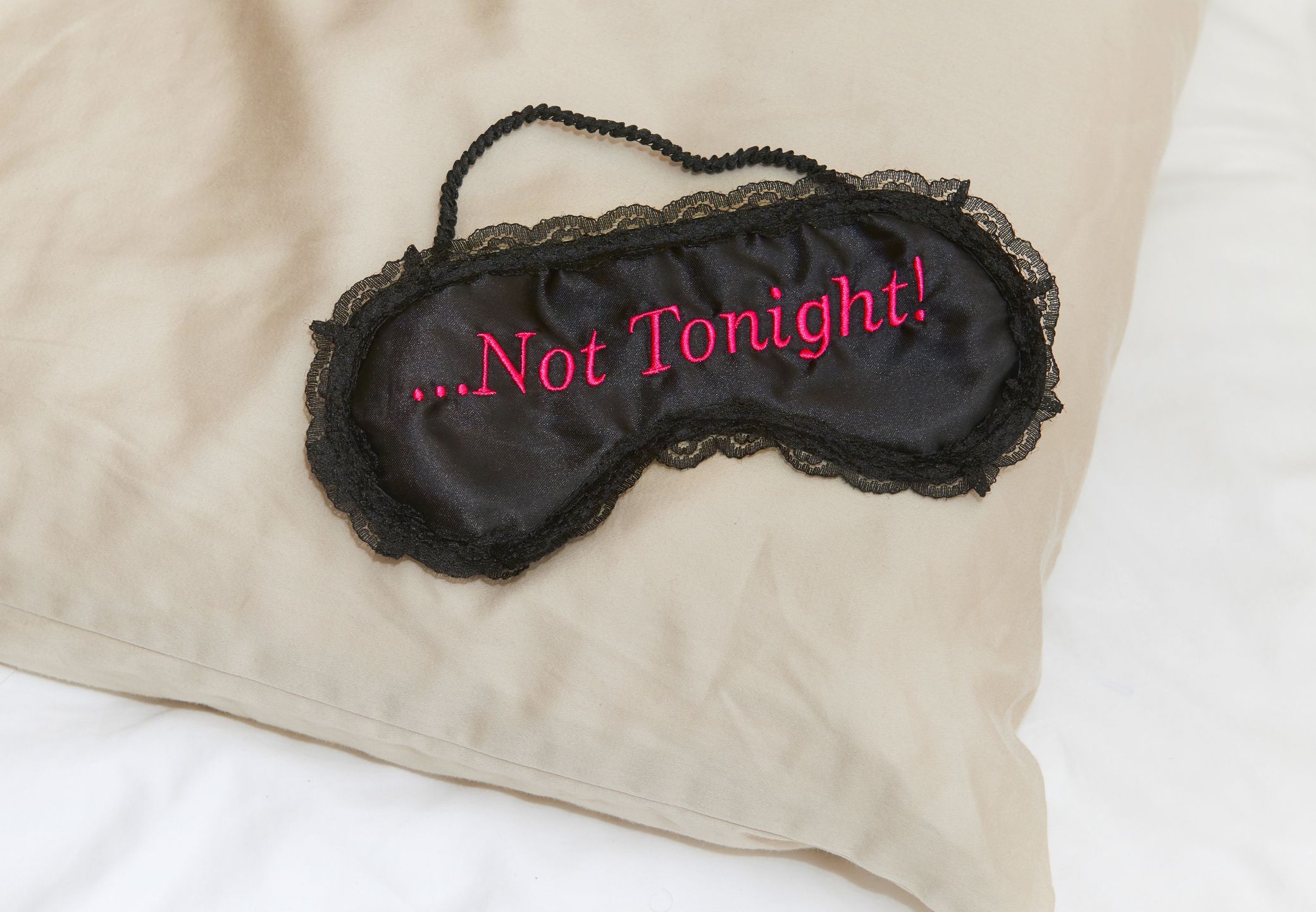Blog
Guilt, Shame and the Fornication Game
Join us as we explore the psychology behind feelings of humiliation and regret associated with sex.
If you’ve ever done the walk of shame, red-eyed and a bit sore, your rumpled clothes screaming ‘YES I HAD CASUAL SEX LAST NIGHT AND NO I HAVEN’T BEEN HOME OR PERFORMED ANY KIND OF PERSONAL HYGIENE,’ at the freshly showered commuters, then you may be familiar with the light guilt/existential self-loathing that can accompany it.

Sex, even the happy casual kind, is rarely seen without its grumpy Puritan cousins, Shame and Guilt, lurking in the shadows trying to spoil everyone’s fun. But where do they come from and why are they denying us a life of cheerful and carefree fornicating?
The Oxford English Dictionary defines guilt as, ‘A feeling of having committed wrong or failed in an obligation,’ and shame as, ‘A painful feeling of humiliation or distress caused by the consciousness of wrong or foolish behaviour’. What strikes me here is the word ’wrong’. It implies a value judgement. But what values? And whose judgement?
Religion’s phallic towers and voluptuous domes
For many the cause of our squeamishness lies firmly at the doors of the Church. Religion looms large in many people’s lives, its phallic bell towers and voluptuous domes a crude reminder of what must be denied in order to live an obedient and holy life. Religion’s phallic towers and voluptuous domes are a crude reminder of what must be denied
But is it lazy to blame Rome for our discomfort? A recent YouGov survey of religious and secular attitudes to sex found no evidence that Catholics feel more guilty about sexual ‘sins’ than other religious people – although religious people in general feel more guilt than the non-religious, with Baptists, Muslims and Pentecostals being the most pink of cheek.
‘Like all moral emotions, guilt comes primarily, as our morality does, from our everyday lives and interactions with those we’re closest to,’ says Linda Woodhead, Professor of Sociology of Religion at Lancaster University.

‘That’s where we learn what we think is right and wrong. In close-knit groups, such as the Baptist Church, there’s a lot of moral policing of one another, which is probably why they feel more guilt.’
Despite the devoted feeling more guilt than their infidel counterparts, a study from Kansas University showed it had absolutely no bearing on their behaviour. They might have felt bad about that quickie in the office toilets, but it certainly didn’t stop them doing it. And the first time they masturbated, had oral sex or intercourse came at about the same age as the heathens.
Having said that, it seems your deity can be an almighty passion-killer. And before I’m struck by lightning, I’d like to state that I’m not advocating anyone turn their back on God. I’m simply reporting that the Kansas survey of more than 14,500 participants showed that people experienced dramatically more sexual satisfaction and a radical decrease in guilt after they left their religion. Over half said their sex life improved to an eight, nine or ten while only 2.2 per cent said it got worse. I feel bad for this last group
Unwanted Inheritance
According to relationship and sex therapist Maureen Williams, religion quickly becomes internalised, ‘There are a lot of people who are influenced by religion in their early upbringing,’ she explains, ‘And whether or not they’ve disclaimed it as they’ve grown older, it still leaves its imprint.’
Mike Lousada is a sex coach and, unlike Williams, his therapy can involve hands-on healing, ‘I differ from conventional therapists because I also do touch work. I think there’s a very profound healing that comes from acceptance through touch. So just simply putting my hands on different part of a person’s body says, “Yes, this part of your body is here – your breasts or your vagina or whatever it is – and it’s OK, it’s not untouchable.” I think it’s a very profound healing of shame.’
Lousada agrees with Williams that sexual guilt through religion has impressive staying power, ‘Now, though, instead of the Church minister standing up there telling you it’s wicked and sinful and if you touch yourself you’ll go to hell, these beliefs have become more subtle and internalised and they come through at a societal level, so even though a lot of the roots lie with religion that’s not where the problem lies these days.’
If you’re thinking it’s unfair that you’re burdened with the hang-ups of long-dead preachers then you’ll be dismayed to learn that you might also be shouldering your forefathers’ sexual baggage. It’s just possible that you inherited more from your grandma than fallen arches and that old ration book.
You might be shouldering your forefathers’ sexual baggage
‘Clients sometimes have a response to intimacy that is more akin to a kind of post-traumatic response or something I would associate with an abuse response and yet there’s no history of abuse,’ says Lousada, ‘I have a client whose grandmother was abused; the mother and my client weren’t abused and yet somehow the sense of abuse is in the system. Some of the verbal messages and unconscious beliefs get passed down from grandmother to mother to child.’
According to Lousada, abuse responses can include being highly sexualised, as people try to normalise their experience by becoming very sexual. Conversely, the person may go the other way and become phobic or asexual.
It follows, then, that the uncomfortable guilt or shame you may experience may not even belong to you. How’s that for irritating?
None For the Ladies
But overall it’s women who are the losers in the shame game. Lousada sees many women for whom shame is the core emotion underlying problems such as sexual disinterest, phobia, and the inability to reach an orgasm. If you dig deep, he says, many women feel it’s not OK to be sexual.
It’s something Williams has seen in her clients too, ‘Orgasms are about letting yourself go,’ she points out, ‘And letting yourself go is difficult if the act of letting go is wound up with guilt.’
Guilt gives women of all classes, and at all levels of income, education and psychological awareness, a harder time than men. But the feeling that it’s not OK to let go is a learned response. ‘Most women don’t realise how much they’ve internalised the idea that they don’t have as much desire as men, that it’s not normal for them to be sexual,’ says Lousada. These impressions are felt young.
‘The first offence against female sexuality is that moment when a girl learns that her body or her sexuality is not OK,’ explains Lousada, ‘So it might be as simple as little Jane and Tommy playing in the garden on a hot summer’s day and they take their tops off and someone says, “Put your shirt on young lady, you can’t walk around like that!” and so she learns that her body is different from Tommy’s and that her body is not OK.’
‘The first offence against female sexuality is that moment when a girl learns that her body or her sexuality is not OK’
The idea of wrongness, of a woman’s body not being OK, the impression that a woman shouldn’t behave as sexually as a man takes us back to value judgements. What’s acceptable in society is forever fluctuating. Homosexuality used to be deemed a criminal act and now we’re making progress, albeit slowly, towards gay marriage. So shame in this sense, much of which feels so personal and internal, can again be something that is put upon an individual rather than generated from within.
Freud 101

Freud thought the psyche was divided into three parts:
ID – The unconscious, impulsive, chest-beating, sex-pest element. It demands pleasure and immediate satisfaction. According to Freud, if the id was left unchecked by the superego we’d all be shagging and murdering in equal measure. Life would be like an episode of Game of Thrones.
Ego – This is also motivated by pleasure, but the ego susses out realistic ways of achieving its goals by incorporating real world values. It doesn’t have any concept of right or wrong, but contrives to get its own way without putting itself in danger.
Superego – Think Hattie Jacques’ Matron. Very little of the id and ego’s impulses will get past
this killjoy, which suppresses and civilises their urges. Especially those related to sex and violence. The superego holds your internalised ideals and morals, generating pride or guilt depending on whether or not your behaviour fits your idea of your ideal self.
And if that doesn’t give you a complex, try one of his other gems:
Oedipus Complex – Bizarre theory that boys between the age of 3 and 5 want to have it off
with their mothers. They fear the urge, suppress the desire, and suffer anxiety as a result.Electra Complex – You guessed it! As above, but with fathers and daughters.
Freud would have us believe that shame’s all about us feeling shoddy for wanting to screw our parents. I think he was projecting a little. His parents must have been really hot. Incest and patricide to one side for a moment, some of Freud’s ideas do still resonate. If so many of us harbour fantasies that we wouldn’t admit to, let alone act out, then it does suggest we shamefully repress our desires for fear of looking like lunatics.
Lousada, although not Freudian, thinks there is a fundamental desire in all of us to get in touch with our profoundly animal and primal instincts. He sees women beginning to give themselves permission to explore this. ‘There’s a growing awareness around female sensuality and empowerment. There’s Fifty Shades of Grey, which speaks deeply to a part of the feminine psyche and is first about women giving themselves permission, and secondly about a longing women have to find within themselves a place of surrender, to surrender to the sexual potency within themselves.’
Guilt is Good?
So could a little guilty sensation be a good and liberating thing? ‘If some of our restrictions are internalised secret egoic limitations, then breaking through them needn’t be a bad thing,’ suggests Professor Woodhead, ‘Maybe you have to feel guilt to step outside of where you are.’
But if Guilt’s busting your balls about a little consensual sex then what’s Shame going to do to you when it gets wind of some of your more outré fantasies? It probably involves hot pokers, and unless that’s part of your fantasy, it’s not going to be pretty. ‘The boundary between the permissible and the impermissible is a very exciting place to be,’ says Woodhead. ‘We certainly like entering into the border areas and contemplating them for ourselves. Some people will want to transgress the limit, others prefer to vicariously watch others, such as celebrities, transgress the borders instead.’
‘It’s possible that guilt, as you test the border guards of your own personal boundaries, serves to heighten pleasure’
‘There are two legs to our moral life. On the one hand you have everyday life and face-to-face encounters with groups, but on the other you have a whole set of cultural symbols, stories and images from film, religion, novels and so on. There’s an interesting relationship between everyday life and your symbolic archive. We’re not determined by our social networks and their mores, often we escape through film or literature which opens our horizons to a completely different set of standards … some may open up pathways we want to live down and that’s what makes us free rather than predetermined beings.’
So it’s possible that guilt, as you test the border guards of your own personal boundaries, serves to heighten pleasure, to tempt you into new areas of self-discovery, experiment with new sex toys or some kinky bondage gear – just as long as you don’t transgress too far. As Robert J. Stoller said, in his book Sexual Excitement, ‘Guilt is not the price paid for being bad but the price paid for the privilege of continuing to be bad.’
Lousada believes that openness and honesty are key to a satisfying sex life, ‘The only way I know to have intimate relationships is to be authentic – which means being honest.’ He explains, ‘If we can do this in sex, that allows us the freedom to have a very profoundly intimate connection with our partner. However, to hear the other’s “truth” requires a high level of self-awareness and psychological functioning. The more we realise that whatever our partner says is not personal to us, but simply an expression or reflection of their own story, the more we can accept it.’

‘The more we realise that whatever our partner says is not personal to us, but simply an expression or reflection of their own story, the more we can accept it.’
The key to overcoming feelings of guilt or shame seems to be in normalising the experience. Lousada uses ‘unconditional positive regard and acceptance, so really just giving the client permission to feel what they feel and to acknowledge that there’s a part of themselves that has sexual desire, that has these fantasies, that wants to do these things. Reassuring them that what they are feeling is very common, and supporting them to give themselves permission.’
So the next time you’re travelling to work in your fancy dancing clothes, using Tic Tacs for toothpaste and smelling like a brewery, hold your head high, for you are an intrepid boundary-busting pioneer, alive to your sexuality and free from religion’s shackles. Unless you were with that oddball from accounts, in which case you probably ought to hang your head in shame.









